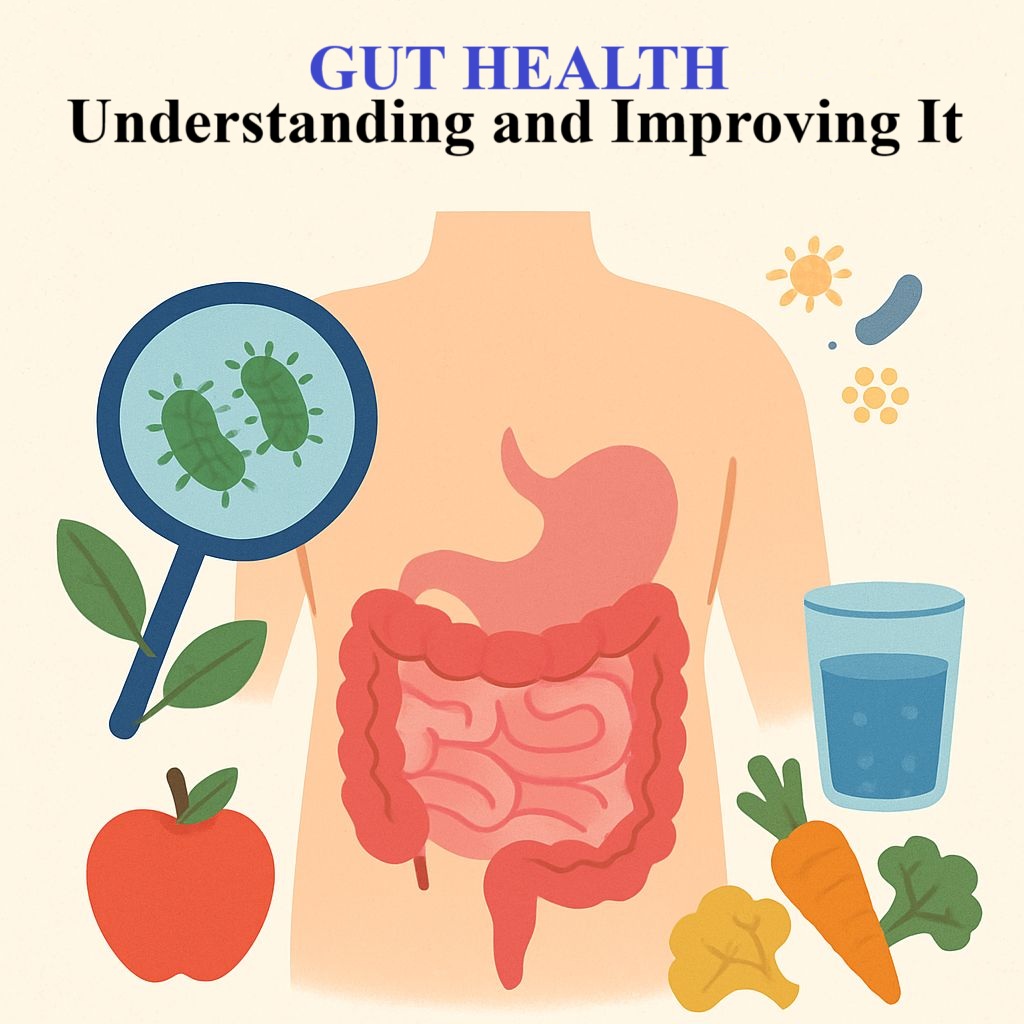What is Gut Health?
Gut health refers to the health of your gastrointestinal (GI) tract, which includes your stomach, intestines, and colon. It plays a crucial role in both your physical and mental health.
What Creates Imbalance in Your Gut?
An imbalance of various bacteria and/or an overgrowth of fungi contribute to an unhealthy environment in your gut, often influenced by your diet. The overuse of medications that block healthy gut function can also lead to poor gut health.
What Factors Affect Gut Health?
- Diet: The foods you eat impact the type and amount of bacteria in your gut. Processed foods, high sugar, and low-fiber foods can lead to an imbalance of bacteria.
- Sleep: Getting enough high-quality sleep is essential for maintaining a healthy gut.
- Stress: Chronic stress can negatively impact gut health.
- Medications: Antibiotics, anti-inflammatory medications, and acid-blocking agents can disrupt your gut health.
- Cleaning Products: Some disinfectant cleaning products can harm your gut microbiota.
5 Signs to Know Your Gut Is Healthy
- Regular Bowel Movement: You have a consistent bowel movement pattern.
- Healthy Stools: Your stools are formed and healthy.
- Good Gut Transit Time: Food moves through your digestive system at a proper pace.
- No Discomfort: You don’t feel any pain or discomfort during bowel movements.
- No Bloating: You don’t experience bloating after meals.
How Can You Improve Gut Health?
- Eat a Healthy Diet: Focus on a balanced diet with plenty of fruits, vegetables, whole grains, beans, and nuts. Include fermented foods like kefir, kimchi, sauerkraut, and pickled ginger.
- Exercise: Regular physical activity supports a healthy weight and promotes gut health.
- Manage Stress: Practice relaxation techniques like meditation, yoga, or spending time with loved ones.
- Get Enough Sleep: Aim for at least 7–8 hours of uninterrupted sleep per night.
- Stay Hydrated: Drink plenty of water throughout the day.
Dietary Tips to Improve Gut Health
Foods to Eat:
- Fiber-Rich Foods: Eat fruits, vegetables, whole grains, and legumes. Fiber helps with digestion and nutrient absorption.
- Leafy Greens: Spinach and kale are high in fiber and essential nutrients like vitamin C, vitamin A, and folate.
- Fermented Foods: These include sauerkraut and kimchi, where bacteria and yeast break down sugars, promoting a healthy gut.
- Foods Rich in Polyphenols: These plant compounds support gut health and are found in fruits, vegetables, and olive oil.
- Fish: Salmon and sardines are high in omega-3 fatty acids, which help with inflammation.
- Pineapple: Contains bromelain, an enzyme that helps break down protein and reduce inflammation.
- Water: Not only essential for digestion, but warm water may also support gut bacteria. Herbal teas (like peppermint, turmeric, ginger, and fennel) can help reduce inflammation and ease digestive distress.
Other Tips:
- Eat a variety of foods to ensure you get a broad range of vitamins and minerals.
- Limit ultra-processed foods.
- Eat slowly and chew your food thoroughly.
- Drink water to help break down food.
Signs of Poor Gut Health
Poor gut health may manifest as fatigue, an upset stomach, skin conditions, and autoimmune challenges. Probiotics, fermented foods, hydration, and stress management can help.
Studies suggest that an overgrowth of bad bacteria in your gut microbiome increases the risk of:
- Crohn’s disease
- Ulcerative colitis
- Irritable bowel syndrome (IBS)
What Can You Do After Eating to Aid Digestion?
If a beverage isn’t enough and you’re still needing help digesting your meal, try the following:
- Take a Walk: Light exercise and gravity can help move food through the digestive system.
- Avoid Lying Down: Lying down or going to sleep can slow digestion.
- Reduce Stress: Participate in activities that lower stress, like deep breathing exercises, yoga, or acupuncture.
- Quit Smoking: Smoking negatively affects gut health.
Reduce Alcohol Consumption: Excessive alcohol can disrupt digestion
